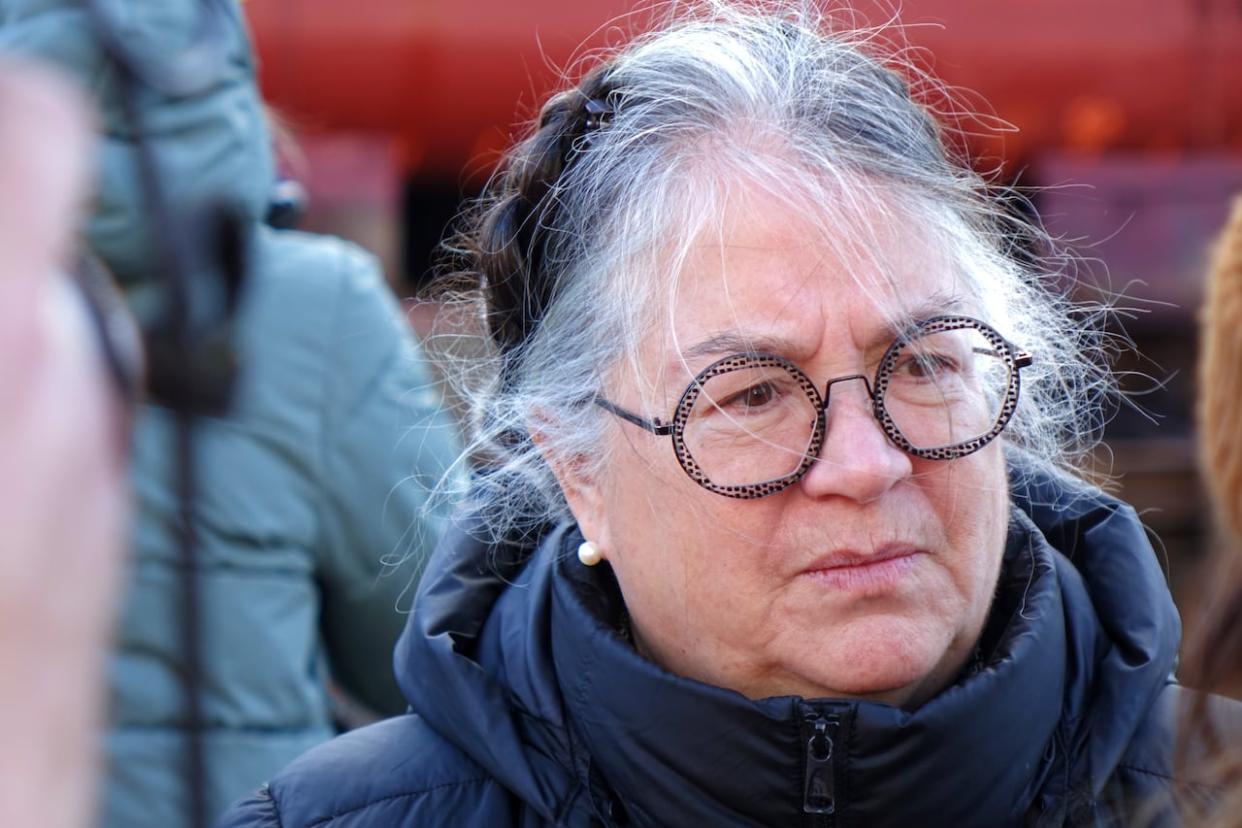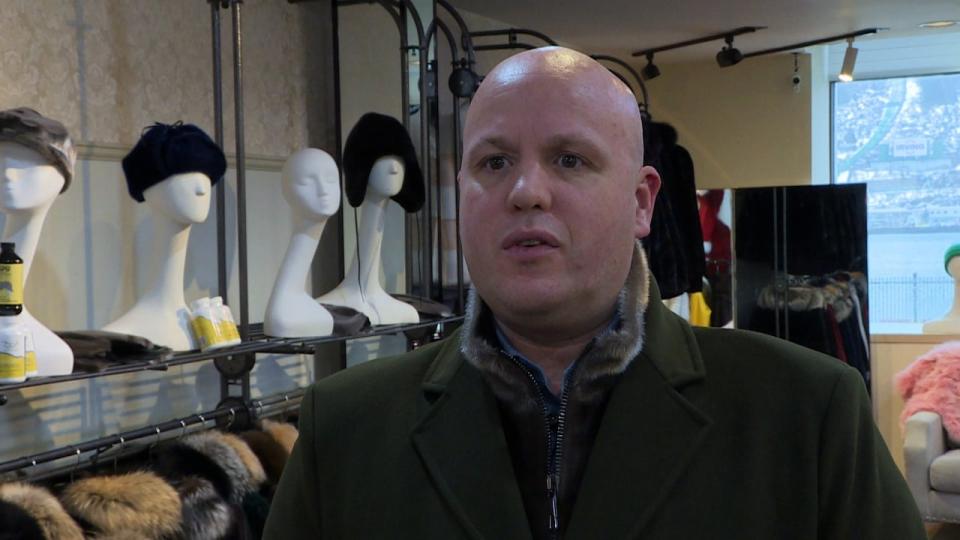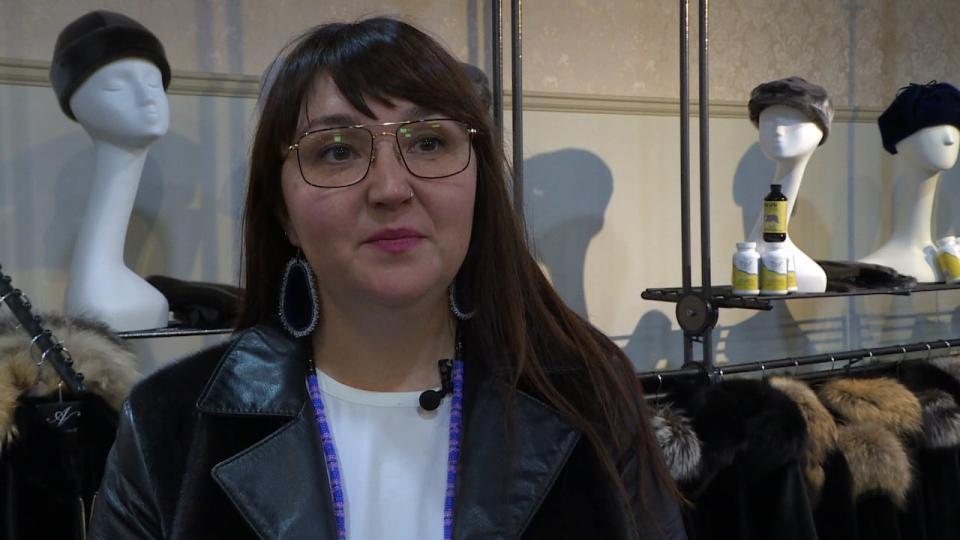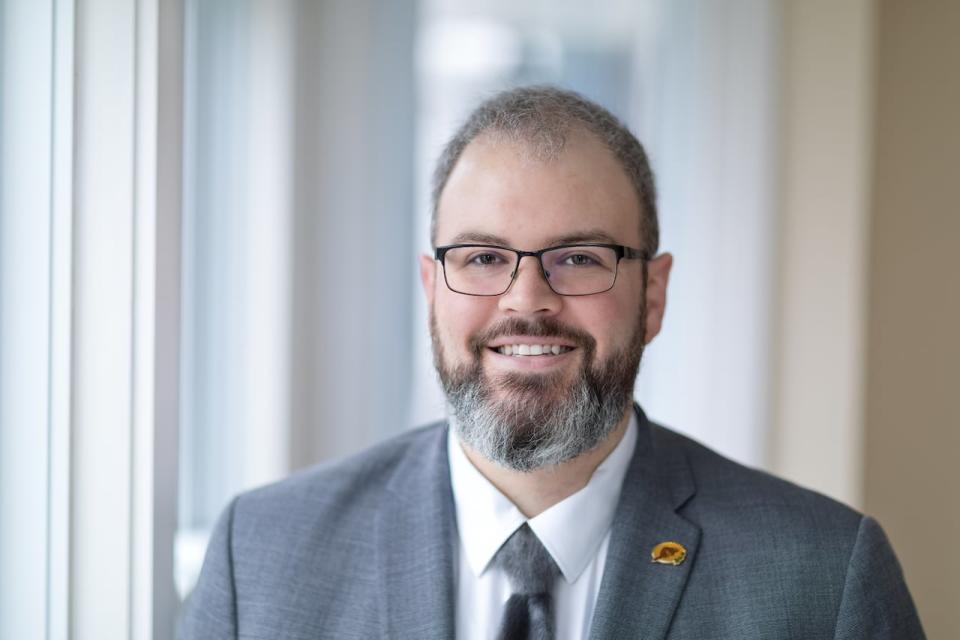Sealing industry feels optimistic after meeting with federal fisheries minister


Diane Lebouthillier, the federal minister of fisheries and oceans, says the seal industry should focus on existing markets, such as Asia. (Patrick Butler/Radio-Canada)
Members of the sealing industry in Newfoundland and Labrador say things are looking up following a meeting last week with the federal fisheries minister.
"It's the first time in a long time that we've left a meeting feeling encouraged and hopeful," said Darren Halloran, owner of Always in Vogue furriers, a processor and seller of seal products in St. John's.
"We think that things are finally going to get done."
Since July, Fisheries Minister Diane Lebouthillier has stated her desire to support the sealing industry, which is unable to sell its products in the United States and the countries of the European Union.
"We're already selling all over Canada, but we want to be able to sell all over the world," said Halloran.
The American and European embargoes have been in force since 1972 and 2009 respectively. While those associated with the sealing industry have repeatedly called for those embargoes to be lifted, Lebouthillier suggests the industry should focus on existing markets.
"We have to keep in mind that there are also the Asian markets," Lebouthillier said in interview with Radio-Canada. "Our markets for seal products don't begin and end in the U.S. and Europe. There are other markets that can be, and are, available."

Darren Halloran, owner of Always in Vogue, says it's the first time he's left a meeting with the federal minister feeling encouraged and hopeful. (Patrick Butler/Radio-Canada)
Lebouthillier's visit to St. John's comes on the heels of her announcement of a change in regulations that sealers have been asking for.
As of Jan. 9, personal use permits for seal hunters across the Maritimes have been authorized. Previously, personal use permits were only available in Quebec and Newfoundland and Labrador.
According to the Fur Institute of Canada, Maritime fishermen have been waiting a long time for this authorization. Ottawa estimates that only about 100 more captures will take place thanks to the measure, but the institute, a national trade organization representing seal hunters and processors, emphasizes that it will help develop the workforce.
Lebouthillier said increasing the number of personal use licenses means more seal products can be exported.
"We can actually process more seals than we are currently," Lebouthillier said. "That's why we're increasing the number of personal use licenses. We don't have enough product, so we need to catch more."
Though members of the sealing industry are happy with this change, the calls continue for a change to the EU regulations. Currently, there is an exception to the regulation which allows seal products from Indigenous hunters to be sold in the EU. However, it calls for complicated and expensive administrative measures.

Jenny Brake, interim chief of Qalipu First Nation, says Indigenous voices are often unrepresented at these types of meetings and was thrilled to be given a seat at the table. (Patrick Butler/Radio-Canada)
Jenny Brake, interim chief of the Qalipu First Nation, says she believes Lebouthillier understands the concerns of Indigenous hunters and processors and wants to improve access to markets.
"I was delighted because I could see the sincerity from her," said Brake. "I was thrilled to be given a seat at the table because quite often Indigenous voices don't get seats at these tables. And it's lovely to see a government that is inclusive of the need for that voice."
Brake said seals are disturbing the ecosystem, which necessitates more hunting.
"Qalipu First Nation sees the imbalance in the ecosystem right now," Brake said. "We need to bring a balance back to the ecosystem. The only way to do that is to break into an international market."
Halloran similarly felt the minister's concern for the industry was authentic.
"I feel like this minister has a personal interest," he said. "She's from the Magdalen Islands. She sees seals all the time. She said today she looks out her window and she sees seals by her house in the water. And that to me brings a personal level to it."
That gives Halloran hope that Lebouthillier will be able to help change the EU's regulations.
"Nobody has been able to get past those barriers," he said. "Nobody's been able to make the conversation go further than a meeting. And I'm really hopeful that this time we have the minister that's going to do that."

Doug Chiasson, the executive director at the Fur Institute of Canada, says it will take the work of the entire federal government to get the EU to change its regulations on seal products. (Submitted by Doug Chiasson)
Doug Chiasson, executive director of the Fur Institute of Canada, says the sealing industry is feeling good about Lebouthillier.
"They think the minister has a real genuine desire to move the needle on the seals file, which is something that we're very encouraged to hear and now it's about turning that enthusiasm and optimism into action," he said.
Chiasson said the the EU will be undertaking an exhaustive review of their regulations this year, including the rules surrounding seal products. He said that represents an opportunity for change for the seal industry but he thinks it will take more than Lebouthillier to get anything done.
"We need a whole of government approach to promoting Canadian seal products and to opening markets and developing markets."
Download our free CBC News app to sign up for push alerts for CBC Newfoundland and Labrador. Click here to visit our landing page.


